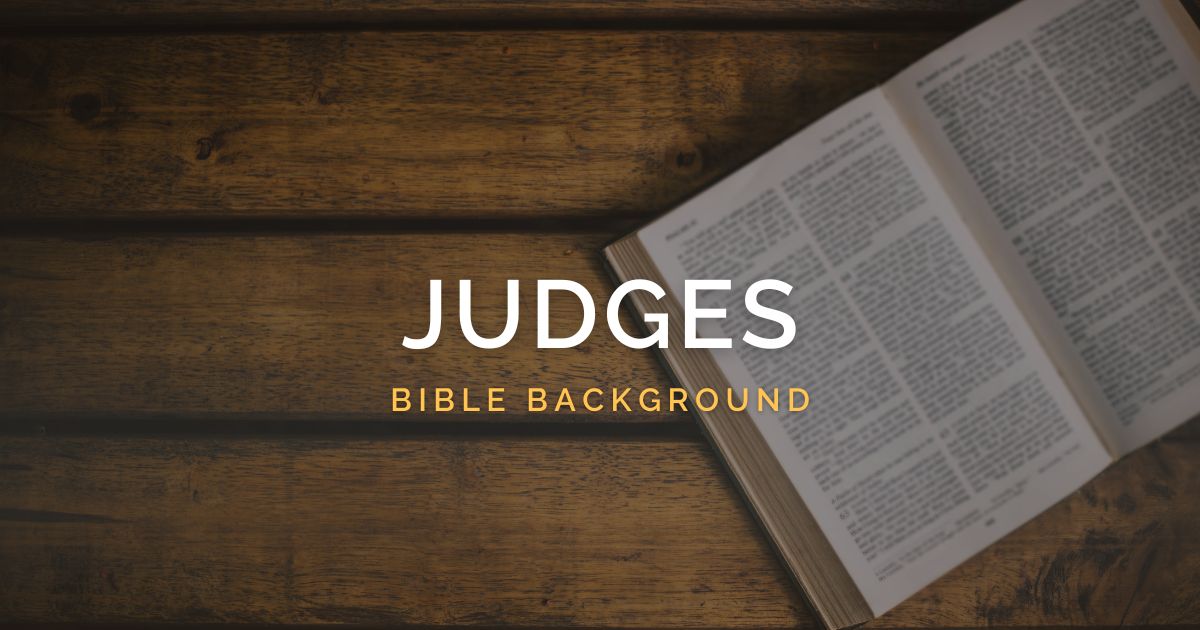Who
The Prophet Samuel to the twelve tribes of Israel
Where & When
This book was probably written around 1043 BC at the beginning of King Saul’s reign. Samuel chronicles the past three hundred or more years of history in which Israel was not ruled by a king. Instead, this period of the “judges” was marked by disobedience, war, repentance, and God’s faithful hand of deliverance. Samuel lived in Ramah, so it is speculated that perhaps he compiled this account in Ramah.
Why
To recount Israel’s history from the Conquest of the Land of Canaan to the Monarchy period, demonstrating that Israel needs Yahweh’s choice of King as promised in Deuteronomy.
How
Be paying attention to these important terms that occur in this book:
- King (or Kingdom, Rule)
- Salvation (or Saving, Savior)
- Judge (or Judgment, Judging)
- Eyes (specifically doing good or bad in one’s eyes)
Literary Outline
In Judges 1:1 – 16:31, the author Samuel makes use of a common refrain—“They did evil in the eyes of Yahweh”—that neatly categorizes it into eight subsections. In Judges 17:1 – 21:25, Samuel uses another common refrain—“There was no king in Israel”—to structure that section into three concluding segments.
- Judg. 1:1 – 2:10 The Era of Mission Failure
- Judg. 2:11 – 3:6 The Era of Sin and Deliverance
- Judg. 3:7–11 Yahweh vs. Mesopotamia (Featured Judge: Othniel)
- Judg. 3:12–31 Yahweh vs. Moab (Featured Judge: Ehud)
- Judg. 4:1 – 5:31 Yahweh vs. Canaan (Featured Judge: Deborah)
- Judg. 6:1 – 10:5 Yahweh vs. Midian (Featured Judge: Gideon)
- Judg. 10:6 – 12:15 Yahweh vs. Ammon (Featured Judge: Jephthah)
- Judg. 13:1 – 16:31 Yahweh vs. Philistia (Featured Judge: Samson)
- Judg. 17:1–13 The Priests Need Yahweh’s King
- Judg. 18:1–31 The Tribes Need Yahweh’s King
- Judg. 19:1 – 21:25 All the People Need Yahweh’s King
